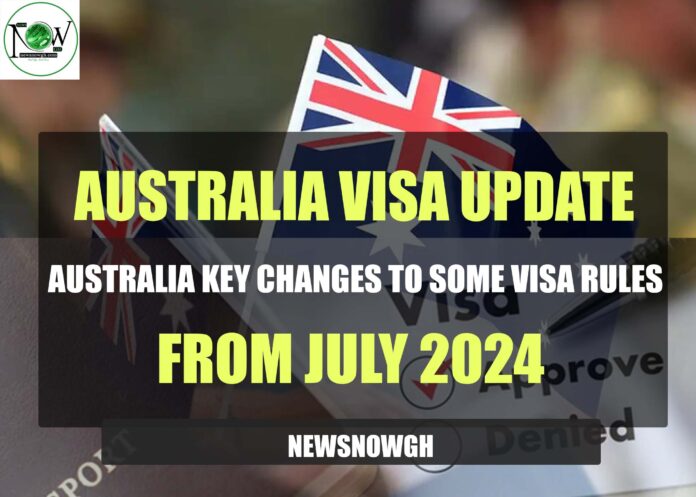Australia Key Changes to Some Visa Rules from July 2024 | Australia Visa Update
The Australian government has begun implementing significant immigration reforms that will affect several visa categories and programs, effective July 2024. These modifications, which range from increased visa application fees to more flexible job restrictions and the termination of specific Visa streams, would affect a large number of prospective applicants and current Australian visa holders, including enterprises.
Even though some changes, like the soft cap on the number of international students, are still being worked out, we’ll cover everything you need to know about significant Australian visa requirements starting in July 2024 in this blog.
1. Additional 10,000 Visas in Western Australia
The Western Australian and Commonwealth governments reached an agreement for 10,000 skilled migration seats for the 2024–25 fiscal year, which is a big step in the right direction toward alleviating labor shortages and fostering economic growth. This agreement will have a significant positive impact on Western Australia’s economy, particularly in the residential building sector.
The requirement for the industry to fill positions that are unfilled locally is specifically addressed in the agreement. The collaboration between the state and Commonwealth governments indicates their commitment to leveraging smart, skilled migration to sustain and expand Western Australia’s economy.
2. Partner Visa Update
Subclass 309 and 100 visa applicants no longer need to be physically present in Australia at the time of decision-making due to the removal of the Family Violence Clause. Applicants who arrived in Australia after the submission of their visa application may now utilize this Clause. Nevertheless, this suggests that if applicants have not visited Australia since submitting their application, they are not qualified to use the Family Violence Provisions.
Applicants were scrutinized more closely when the department allowed the visa to be granted with applicants’ onshore visiting visas for subclass 309 and 100 visas. As of July 1, 2024, the agency increased the partner visa application fee to $99,950.
3. Introduction of a New Workplace Justice Visa
A new stream known as the Workplace Justice Visa has been developed under the Subclass 408 Temporary Activity Visa Category. It allows victims of worker exploitation to remain in Australia while they legally pursue their claims before the relevant authorities. Temporary stays in Australia are allowed for a maximum of four years through multiple visa renewals. The duration of stays can range from six to twelve months.
The goal of the new project is to protect visa holders’ rights. This is part of the government’s effort to reduce the likelihood of migrant exploitation and ensure that workers can pursue justice at work without being restricted by the status of their visa.
4. Changes to the Graduate Visa Program
The government has renamed the applicable streams under which an application may be submitted and lowered the age limit for the Subclass 485 Visa program to 35. The maximum number of consecutive visas an applicant may have has been lowered to four, and the validity periods of their visas have been decreased.
The Graduate Workstream was renamed as the “Post Vocational Education Workstream,” and the Post-study Workstream was renamed the “Post Higher Education Workstream.”
5. Visa Restriction for Some Applicants
Beginning in July, certain individuals with temporary visas will not be permitted to apply for a student visa while they are in Australia. This plan aims to decrease the number of former international students living in Australia on a permanent, temporary basis and to stop them from switching visas.
These changes will affect some visitors and holders of temporary visas. Individuals holding Temporary Graduate Visas are urged to leave Australia and look for other visa pathways that could lead to permanent residency or to seek skilled work. For people with a visiting visa who want to study in Australia, they must apply for a student visa outside of the country.
6. Mandatory Medical Test for Visa Applicants
As of July 1, all visa applicants over the age of 15 who were born in a country where there is a high risk of contracting hepatitis B will be required to undergo mandatory Hepatitis B testing as part of their visa health examinations, regardless of the status of their current passports.
This suggests that applicants for both permanent and provisional visas who were born in a high-risk country and later became citizens of a low-risk country and who are older than 15 will have to take the Hepatitis B test as part of the health assessment procedure.
Follow us on Newsnowgh.com to stay updated on the latest information regarding work permits, visa application processes, paths to permanent residency, and visa-sponsored employment.


